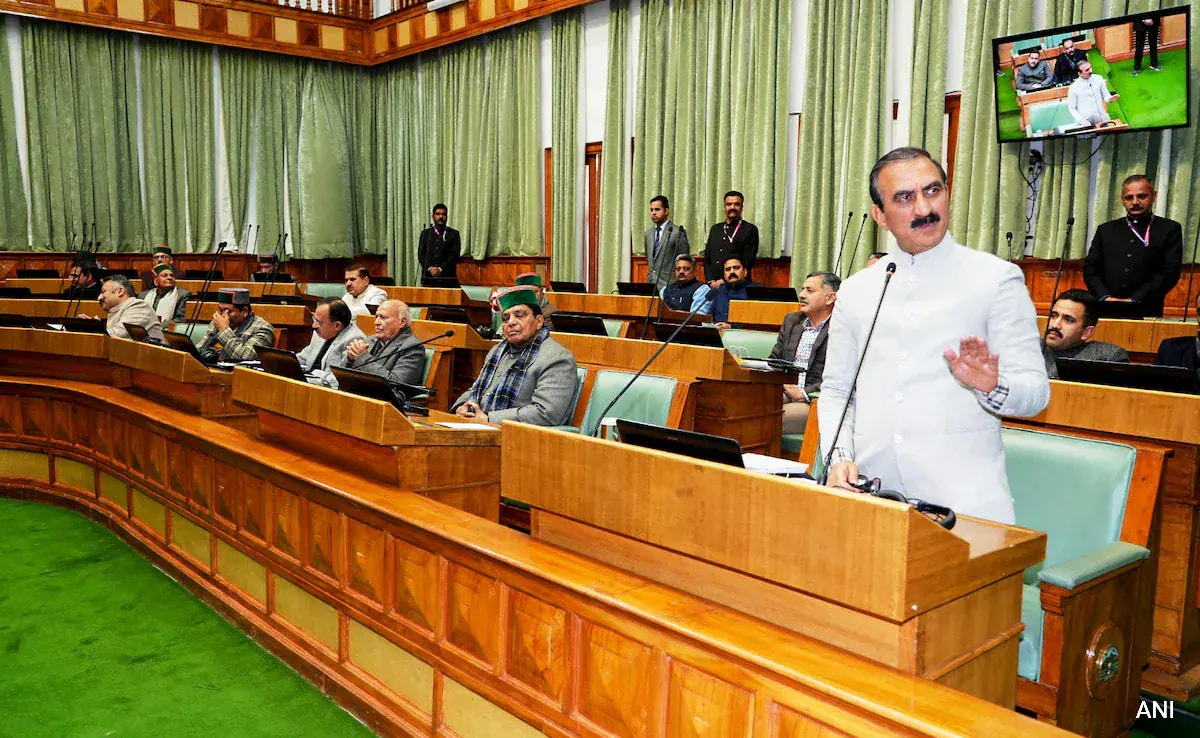
The high court has termed the cess unconstitutional.
Shimla:
In a setback to the Sukhwinder Singh Sukhu-led Congress government, the Himachal Pradesh High Court on Tuesday declared the water cess levied on hydropower generation unconstitutional. With this, the government will have to forgo an annual revenue of around Rs 2,000 crore it was hoping to make by levying the cess on hydroelectric projects.
The Sukhu-led Himachal government has now decided to move the Supreme Court on the issue.
A high court division bench of Justices Tarlok Singh Chauhan and Stayen Vaidya on Tuesday said that the provisions of the Himachal Pradesh Water Cess on Hydropower Generation Bill, 2023 exceed the state’s legislative competence as per Articles 246 and 265 of the Constitution of India, rendering it ultra vires (beyond its legal powers).
Sections 10 and 15 of the Himachal Pradesh Water Cess on Hydropower Electricity Generation Act, 2023, dealing with fixation and liability to pay cess made applicable to the existing projects, are declared to be unconstitutional and stand quashed, the bench said.
“The provisions of the Himachal Pradesh Water Cess on Hydropower Electricity Generation Act, 2023, are declared to be beyond the legislative competence of the State Government in terms of Articles 246 and 265 of the Constitution of India. Consequently, the Himachal Pradesh Water Cess on Hydropower Electricity Generation Rules 2023, are also quashed and set aside,” the judgment passed by a division bench of Justices Tarlok Chauhan and Satyen Vaidya stated.
Rajnish Maniktala, the advocate of the petitioner said “There are potential hydroelectric projects in the state. The government of Himachal Pradesh invited projects to exploit the potential and the investors invested lots of money projects were commissioned and there was no concept of water cess then for taxation.”
He further added that the government and legislature came up with an Act and levied the Cess depending on the generation and usage of water. This amount was calculated in Crores of rupees and the petitioners questioned this act. As per Article 246 of the Constitution, there were no powers of the state.
“Consequently the court has ordered a refund of the money to those projects from whom the state government has charged water Cess. Article 265 of the Indian constitution says no tax can be levied by the state government on the provisions of the law. It has been sound that this act is unconstitutional and has observed that it has ultra vires the constitution. There were nearly 40 petitioners in the case,” added Mr Maniktala.
Anup Kumar Rattan, Advocate General of the High Court, said, “The state government had constituted the Water Cess Act and it has been quashed by the High Court. The Act was constituted with the idea to generate resources in the state as over 70% area in the state either is under occupation of forest or water area. The state government tried an attempt to tap those resources. Such Acts were functional in Jammu and Kashmir, Uttarakhand and Sikkim and governments are getting revenue.”
He further said that along similar lines, the state government had imposed water cess on hydropower generation companies on the uses of water and there was a possibility of generating income for the state.
The court has declared it unconstitutional as it was not in the competence of the state government. The court has also ordered that if tax is charged, the refund should be given within four weeks.
The state is facing an acute fiscal crunch and some of the hydropower players have already deposited Rs 33 crore as cess. The case in the high court had been filed by nearly 40 hydropower generators.
(Except for the headline, this story has not been edited by NDTV staff and is published from a syndicated feed.)

